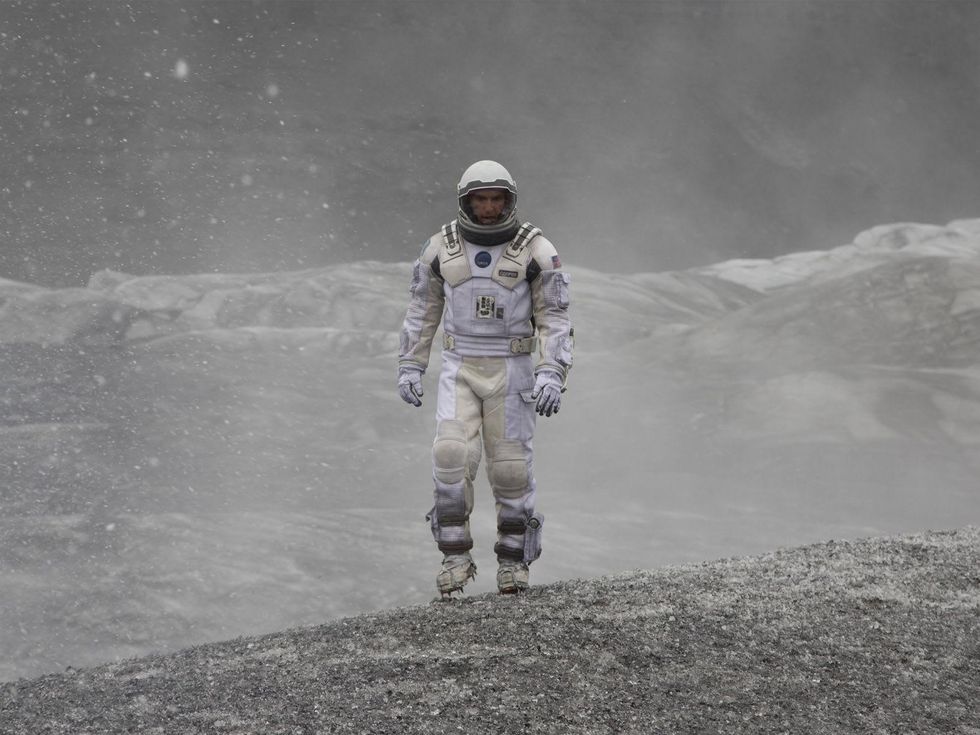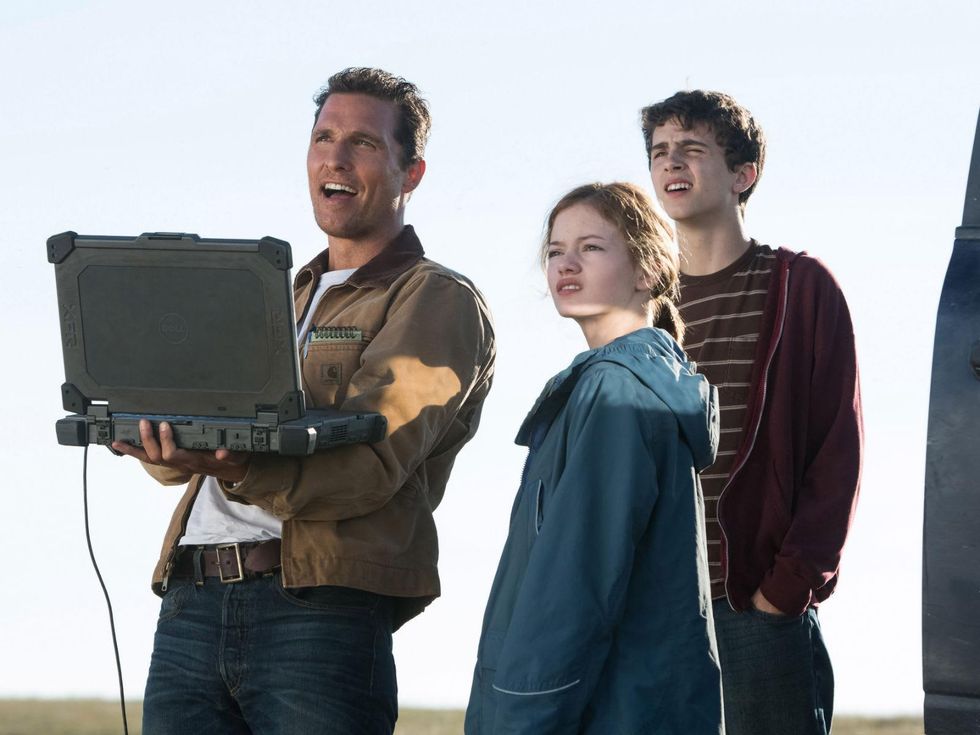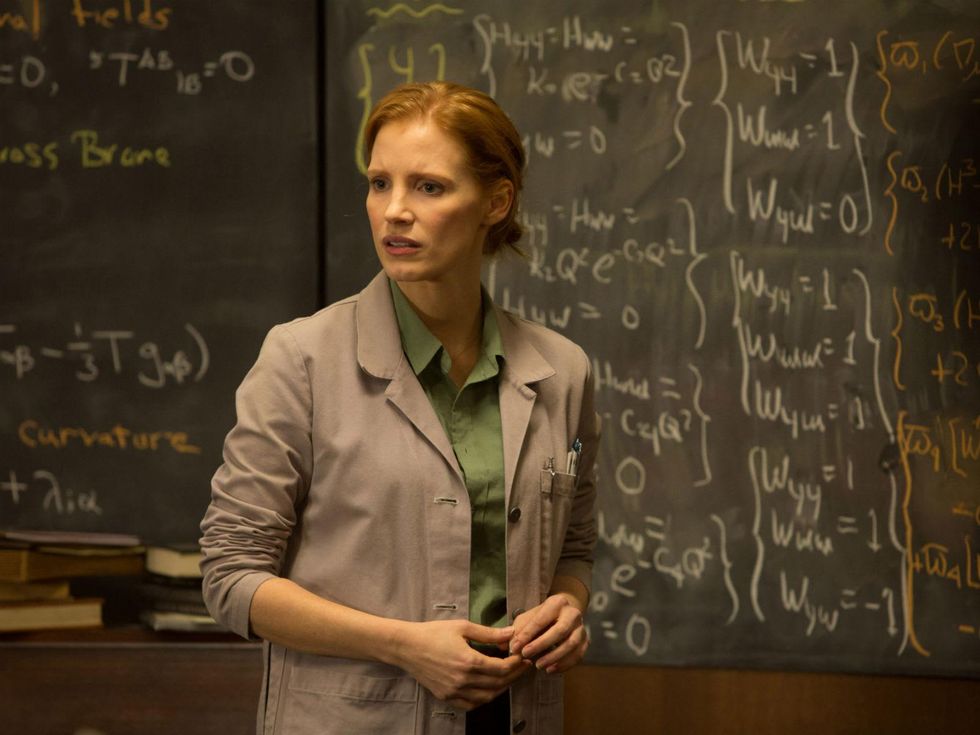McConaughey's New Film
Interstellar reaches for movie heights but falls short of the stars
Director Christopher Nolan has never been the type to take it easy on anyone who watches his movies. From his early works like Following and Memento all the way through his Dark Knight trilogy, Nolan has filled his films with complicated ideas and fuzzy moral compasses.
However, his latest, Interstellar, may take the cake when it comes to his brand of hyper-intelligent moviemaking. It is a sprawling, nearly three hour trek filled with complicated ideas about space travel, Einstein’s theory of relativity, food shortages and other things that makes Memento easy to understand by comparison.
While the Nolan brothers do their best to keep the dialogue accessible to non-science geeks, it’ll be the rare moviegoer understands the entire movie the first time around.
At its center is Cooper (Matthew McConaughey), a former NASA pilot now toiling as a corn farmer in order to help alleviate a worldwide food shortage at an indeterminate point in the future. With the human race threatened by extinction, Cooper is recruited to lead a mission to the farthest reaches of space to find a world that will save the species.
Nolan and his brother, Jonathan, who co-wrote the film, disorient the audience right from the start with things that are familiar yet foreign at the same time. Were it not for the constant dust storms and things like the New York Yankees playing home games in a run-down stadium in the country, the world they put forth could almost be our own.
Once the action goes into space, things really start to get complex. While the Nolan brothers do their best to keep the dialogue accessible to non-science geeks, it’ll be the rare moviegoer who proclaims that they understood the entire movie the first time around. As the crew, which includes Anne Hathaway, has to deal with wormholes, black holes, time slowing down and other factors, there’s a lot of jargon to wade through.
Were this film done by any other director but Nolan, the race to find a new habitable planet would be the overriding plot arc. Even though it’s still arguably the main focus, the film makes plenty of time for other storylines, social commentary and other plot points. The film is less a thriller and more a meditation on human relationships and desires.
The biggest issue is that what is supposed to be the film’s biggest bond, between Cooper and his daughter, Murph, never really gels. The film has so much going on that the heartbreak Murph suffers when Cooper leaves on his voyage doesn’t get a chance to truly register.
From a visual standpoint, Interstellar does make an impression. Although you don’t get the “you are there” feeling of Gravity, Nolan and his crew make sure to give a sense of wonder to traveling through deep space. They also amaze with blocky, sentient robots that move with a grace that is unexpected, and who are as helpful to the cause as any human.
Interstellar is one of those films you will be thinking about long after you leave the theater, but on a purely visceral level, it doesn’t measure up to some of the year’s best. It could be a film that improves on second and third viewings when worrying about the details of the story becomes less important, but few will have the opportunity to do so.




